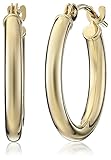All Categories
*Price and Stocks may change without prior notice
*Packaging of actual item may differ from photo shown
- Electrical items MAY be 110 volts.
- 7 Day Return Policy
- All products are genuine and original








About Measuring The World: A Novel
Product Description Measuring the World marks the debut of a glorious new talent on the international scene. Young Austrian writer Daniel Kehlmann’s brilliant comic novel revolves around the meeting of two colossal geniuses of the Enlightenment. Late in the eighteenth century, two young Germans set out to measure the world. One of them, the aristocratic naturalist Alexander von Humboldt, negotiates jungles, voyages down the Orinoco River, tastes poisons, climbs the highest mountain known to man, counts head lice, and explores and measures every cave and hill he comes across. The other, the reclusive and barely socialized mathematician Carl Friedrich Gauss, can prove that space is curved without leaving his home. Terrifyingly famous and wildly eccentric, these two polar opposites finally meet in Berlin in 1828, and are immediately embroiled in the turmoil of the post-Napolean world. Review "A masterfully realized, wonderfully entertaining and deeply satisfying novel. . . . Addictively readable and genuinely and deeply funny."—Los Angeles Times"Kehlmann's lightly surreal style [is] a mixture of comedy, romance and the macabre, with flashes of magical realism that read like Borges in the Black Forest." —The Washington Post Book World"Elegant and measured in design and expression. . . . What distinguishes Kehlmann are quickness of pace and lightness of touch."—The New York Times Book Review About the Author Daniel Kehlmann was born in 1975 in Munich, the son of a director and an actress. He attended a Jesuit college in Vienna, traveled widely, and has won several awards for previous novels and short stories, most recently the 2005 Candide Award. His works have been translated into more than twenty languages, and Measuring the World became an instant best seller in several European countries. Kehlmann is spending the fall of 2006 as writer-in-residence at New York University’s Deutsches Haus. He lives in Vienna. Excerpt. © Reprinted by permission. All rights reserved. The Journey In September 1828, the greatest mathematician in the country left his hometown for the first time in years, to attend the German Scientific Congress in Berlin. Naturally he had no desire to go. He had been declining to accept for months, but Alexander von Humboldt had remained adamant, until in a moment of weakness and the hope that the day would never come, he had said yes. So now Professor Gauss was hiding in bed. When Minna told him he must get up, the coach was waiting and it was a long journey, he wrapped his arms around the pillow and tried to make his wife disappear by closing his eyes. When he opened them again and Minna was still there, he told her she was a hindrance, and limited, and the misfortune of his old age. When that didn’t work either, he pushed back the coverlet and set his feet on the floor. Bad-temperedly, he performed the most minimal ablutions and went downstairs. In the parlor, his son Eugen was waiting with a bag packed. As Gauss caught sight of him, he flew into a rage: he broke a jug that was standing on the windowsill, stamped his foot, and struck out wildly. He wasn’t even to be calmed when Eugen to one side of him and Minna to the other laid their hands on his shoulders and swore that he would be well taken care of, he would soon be home again, and everything would be over in no time, just like a bad dream. Only when his ancient mother, disturbed by the noise, emerged from her room to pinch his cheek and ask what had happened to her brave boy did he pull himself together. Without warmth he said goodbye to Minna, and absentmindedly stroked the heads of his daughter and youngest son. Then he allowed himself to be helped into the coach. The journey was a torture. He called Eugen a failure, took the knobbed stick away from him, and jabbed it full force at his foot. For a time he stared out of the window, a frown on his face, then asked when his daughter was finally going to get married. Why didn’t anyone want her, what was the pr




 (1)
(1)













